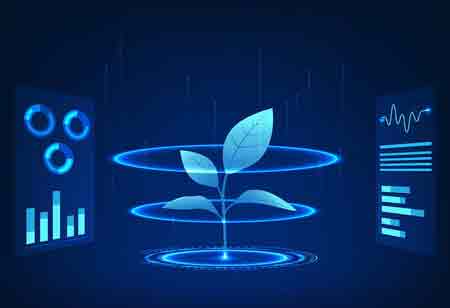Thank you for Subscribing to Environmental Business Review Weekly Brief
Harnessing Aquaculture for Environmental Conservation: A Comprehensive Guide
This article explores the potential environmental benefits of aquaculture, emphasizing its role in restoring and conserving aquatic ecosystems.

By
Environmental Business Review | Monday, December 04, 2023
Stay ahead of the industry with exclusive feature stories on the top companies, expert insights and the latest news delivered straight to your inbox. Subscribe today.
This article explores the potential environmental benefits of aquaculture, emphasizing its role in restoring and conserving aquatic ecosystems. Despite challenges, strategic aquaculture practices can contribute to reducing the impacts of climate change, protecting habitats, and supporting vulnerable fish populations.
Fremont, CA: The escalating global effects of climate change have led to widespread biodiversity loss and habitat degradation in aquatic ecosystems. While aquaculture itself may pose risks such as pollution and habitat damage, when approached with care, it holds the potential to mitigate these impacts and contribute to environmental conservation.
Global Conservation Efforts:
Globally, a significant portion of the population resides near freshwater or marine ecosystems, relying on these habitats for food, tourism, recreation, culture, and livelihoods. Unfortunately, the degradation of these ecosystems has resulted in a rapid decline in biodiversity and the deterioration of crucial habitats.
Various methods exist for species recovery, habitat restoration, rehabilitation, and protection, ranging from bioremediation and assisted evolution to biological control, replacing wild harvests, coastal defense, removing exuberant species, climate change mitigation, and the conservation of ex-situ sites.
Aquaculture as an Environmental Solution:
Despite some types of aquaculture having known negative impacts, the focus has shifted towards leveraging it as an environmental benefit for the conservation and restoration of species and ecosystems.
Aquaculture Techniques:
In addition to its role as a food source, aquaculture techniques are being harnessed by conservationists in innovative ways to restore or conserve species and habitats. Pioneering efforts by conservation organizations, such as The Nature Conservancy (TNC), highlight the use of aquaculture to restore lost marine ecosystems.
Restoring Lost Shellfish Reefs:
One significant contribution of aquaculture globally is its role in the recovery of vulnerable or endangered fish populations by restocking their habitats with cultured farmed fish.
Indicators of Success:
To assert that a specific aquaculture activity is ecologically beneficial, it is crucial to use measurable indicators of success. This approach minimizes the risk of greenwashing by demanding high standards of evidence. Aquaculture practitioners should diligently monitor their environmental impact before claiming ecological benefits from their farms.
It is important to note that achieving one of the 12 specified outcomes of aquaculture activities does not automatically guarantee overall environmental benefit. Therefore, evaluating the net impact of the activity is essential in determining whether aquaculture contributes positively to ecological conservation.





